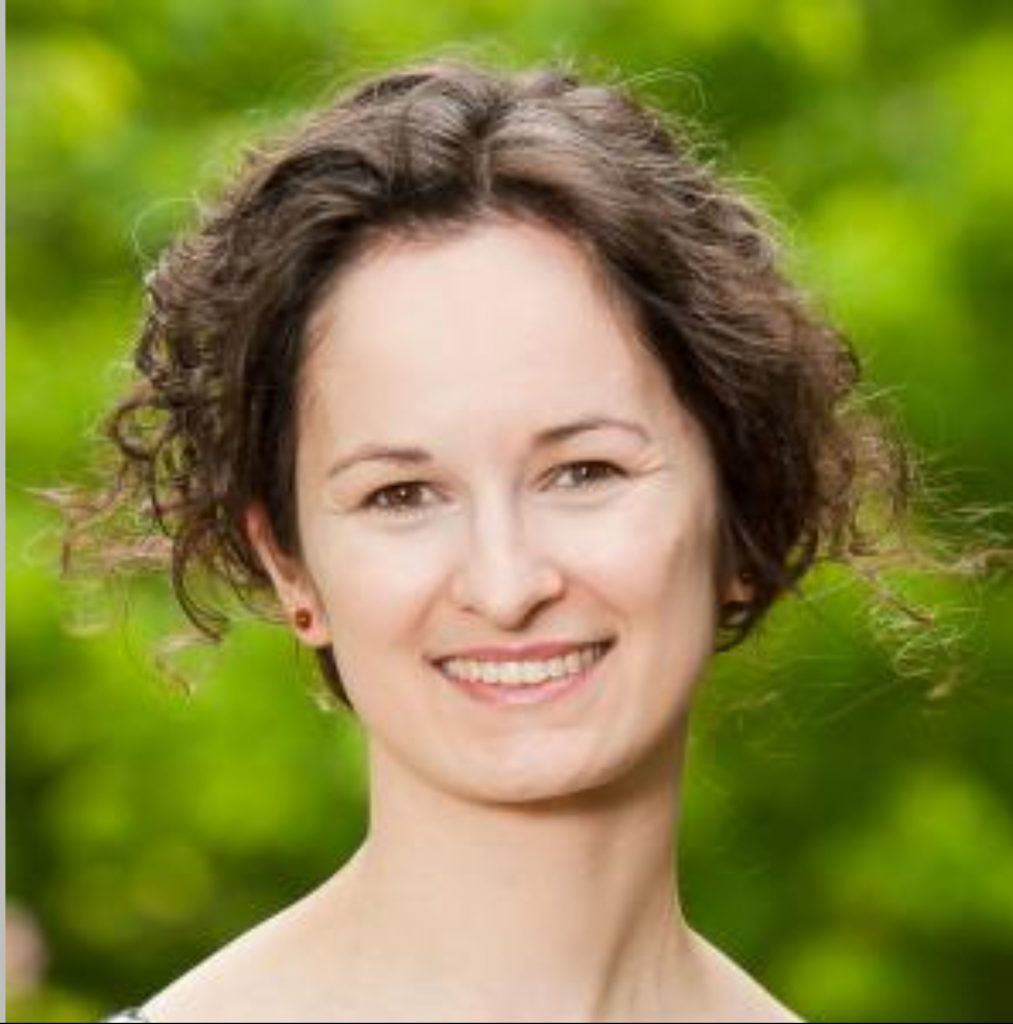We’re taking time to get to know the members of the GSA’s Early Career Scientist Committees. Join us to learn more about our 2020 early career scientist advocates.

Anna Drangowska-Way
FASEB Intern
Communications & Outreach Subcommittee
University of Virginia
PhD student
Research Interest
In science, we are often curious about how genes are regulated, what causes them to be active, and what inhibits their activity. Scientists often look at some specific condition, such as fasting, and investigate gene regulation in that specific situation, which is referred to as “molecular context.” In order to determine how gene activity is regulated, we test what proteins, known as transcription factors, are responsible for gene activation in the molecular context we are studying. Interestingly, emerging research shows that genes may play different roles and be differently regulated depending on the molecular context of an organism.
I collaborate with computer scientists to build a network of transcription factors to understand how complex the regulation of genes can be. I specifically investigate how lipases are regulated in a small roundworm called C. elegans during stress and fasting, which are considered two different contexts. My research aims to understand how molecular context can influence gene regulation. I concentrated on one specific group of genes called lipases, which are enzymes responsible for fat breakdown. I am studying multiple transcription factors involved in the process of lipase gene regulation. My goal is to understand how transcription factors are interacting with each other to activate the expression of lipases in different contexts. Most importantly, I want to understand how context is impacting gene regulation. I have already seen that the same transcription factor can either activate or inhibit lipase depending on whether the animal fasted or was exposed to the chemical that causes stress. My research highlights the importance of studying gene regulation in a specific context and the importance of investigating how multiple transcription factors are interacting with each other in the process of gene regulation.
As a PhD-trained scientist, you have many career options. What career paths interest you the most?
The most interesting career paths for me are related to communicating science. There are many options in science communication, and I am sure there are more careers which can be very satisfying for me. In my future line of work, I would enjoy facilitating effective communication between scientists and the general public. This can be done in many settings, and one of the most popular is science writing. I enjoy writing for non-scientific audiences much more than writing for scientists. I find writing about science in an exciting, simple, and accurate way to be a challenge that requires a lot of skills. I am still learning and polishing these skills, and I find this self-improvement process enjoyable.
I also enjoy teaching, especially through the mentorship of undergraduate researchers in my lab, and I would love to explore teaching science communication to scientists as one of my career options. I want to share my knowledge from the perspective of someone who used to work on the bench and understands scientists and the research process well.
I have also considered using my science communication skills in industry. Industry is a place where collaboration between scientists from different fields and people who do not have a background in science happens daily and in sometimes unexpected circumstances. For example, specialists from marketing often have to explain to customers how their science-based product works. For this they need to understand what scientists in the research and development team are doing. Effective communication is essential for the company to thrive, and I see myself as a person who could facilitate effective communication between scientists from the research and development team and their colleagues who do not have scientific backgrounds.
In addition to your research, how else do you want to advance the scientific enterprise?
If scientists do not explain the implications of new scientific discoveries in a clear, jargon-free, and understandable way, someone else may take the opportunity to spread disinformation. My goal is to improve communication between scientists and the rest of the world. I want to help scientists to communicate effectively with a broader audience, whoever the audience may be: policy makers, high-school students, family members, or even fellow members of the community.
I would like scientists to understand why effective science communication outside of academia is so important. Science has a broad influence on our lives, from vaccines and medical treatments to new weed killers. People want to know and understand the implications of these advances in their personal lives. I am a scientist myself, so I feel that the responsibility is also on me. I am continuously learning and improving my own skills to communicate better. This is the reason I participate in science writing—to share scientific discoveries with broader audiences.
As a leader within the Genetics Society of America, what do you hope to accomplish?
One of my goals is to improve my skills as a writer. I work with other members of the Communication and Outreach Subcommittee on outlining, writing, editing, and ultimately submitting pieces for online publication. The Early Career Leadership Program (ECLP) offers a great opportunity to receive feedback from fellow researchers and give feedback to others. This is a wonderful community where we have peer-to-peer learning all the time, and we help each other to improve and share our knowledge while creating high quality written pieces that explain science to the public using accessible language.
Moving forward, I would like to spearhead more long-term projects. Since I love science communication and enjoy teaching, I have proposed that we create a series of science communication workshops where ECLP Leaders can teach scientists how to improve their science communication skills, become involved in science communication and outreach, and more. I plan to create a sustainable workshop series which can stay with the committee even after I leave the program. This project has just started, and we are working on our first online workshops, which I hope you will join!
Previous Leadership Experience
Communicating Science Conference (ComSciCon) at UVA, Chair
PhD Plus Liaison for the Biology Department in the area of Science Communication
Forum for Interdisciplinary Dialogue: Academics and Social Media, Co-organizer
Polish Student Association at the University of Virginia, Secretary and Cultural Awareness Chair
Social Contacts































